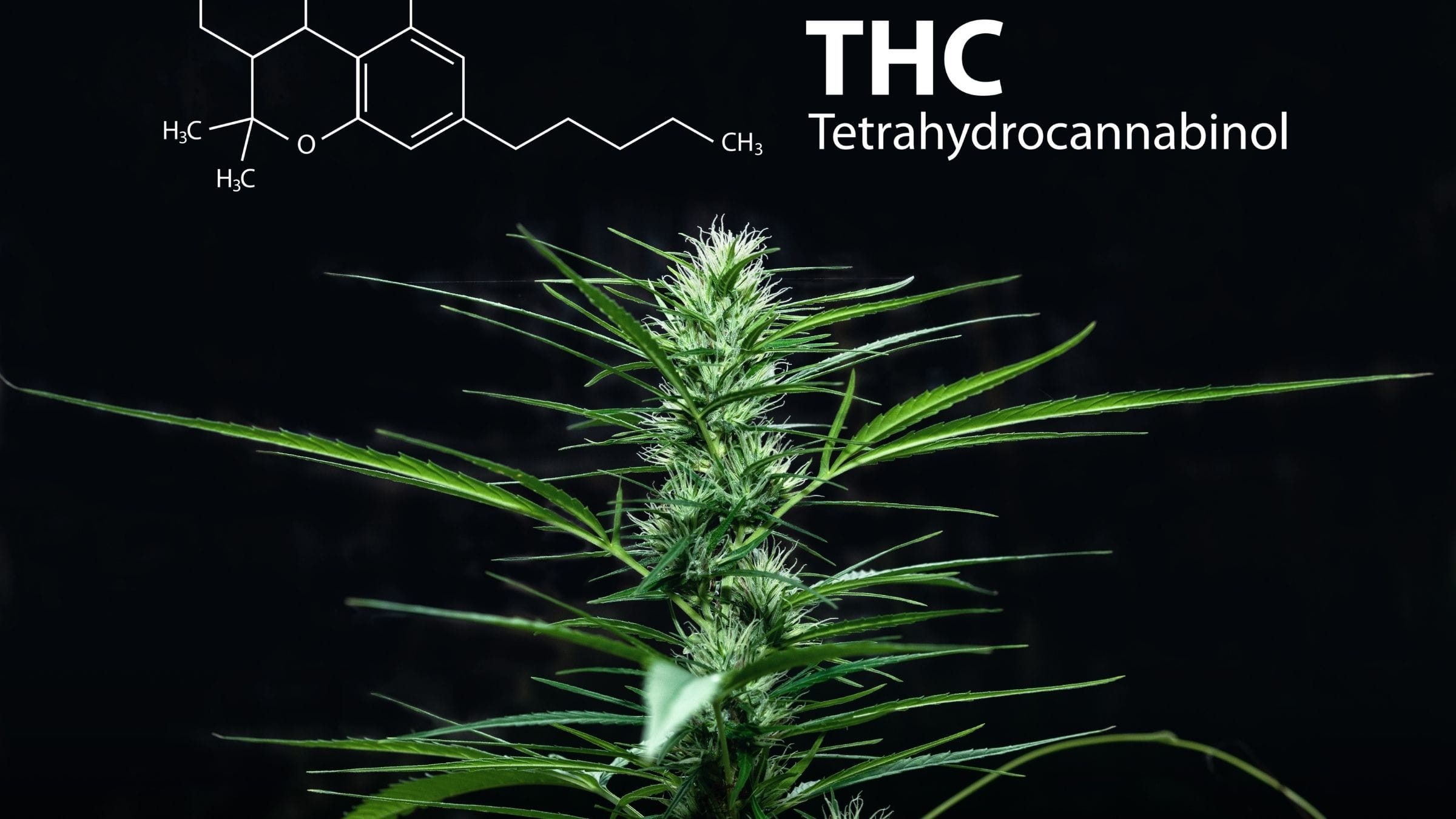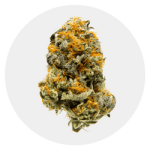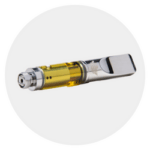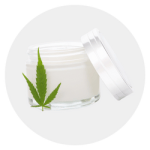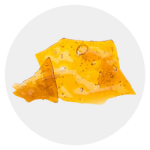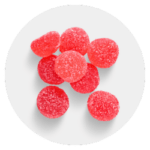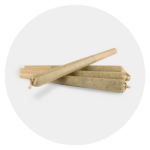While most people know that tetrahydrocannabinol (THC) is the active ingredient in cannabis responsible for its psychoactive properties- not everyone knows that THC has many forms.
The most common form of THC is delta-9 THC. This is what gives it the honor of simply being called “THC.”
In this article, we will cover all aspects of delta 9 THC.
Here you will find dosing guidelines, legal information, as well as a comparison between THC and other cannabinoids.
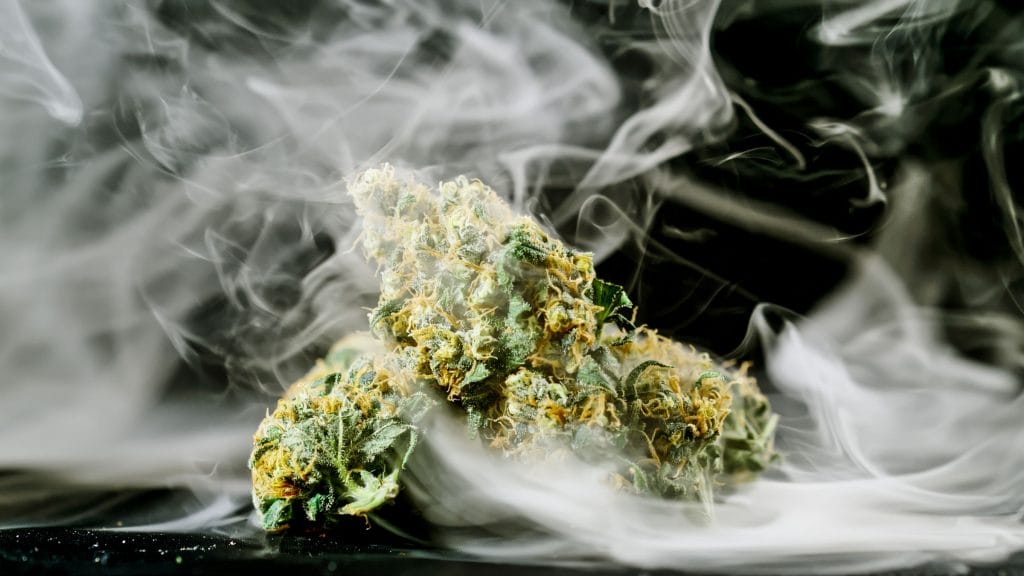
Delta-9 THC: What Is It?
THC or delta-9 THC is the primary psychoactive substance found in marijuana plants. Historically speaking, its main function in the plant is to protect the plant from sun and insect damage. Contemporary cannabis plants are higher in THC than they were in the past due to human intervention.
Raphael Mechoulam, a 1964 scientist, was the first person to examine THC seriously. He was able to extract THC from cannabis flower and discover that THC could cross the blood-brain barrier. Additionally, he also was the first to discover that THC was the responsible compound for the notorious psychoactive effects felt from smoking marijuana. This discovery opened up new avenues for research into the body’s interactions with cannabinoids.
People often refer to delta 9 THC simply as THC, dropping its delta 9 specifier. This is because, up until recently, delta 9 THC was thought to be the only THC compound. Recent findings on different forms of THC have changed the way THC is talked about.
Other forms of THC such as delta-8 THC, delta-10 THC, and THC-O, are usually referred to by their full name to avoid confusion.
Chemically, what gives these forms of THC their different names are their respective locations on a carbon double-bond. Isomers like delta-8 and delta-10 THC have these double bonds in different positions (respectively, the eighth and tenth position.)
This seemingly small change can result in markedly different pharmacological effects.
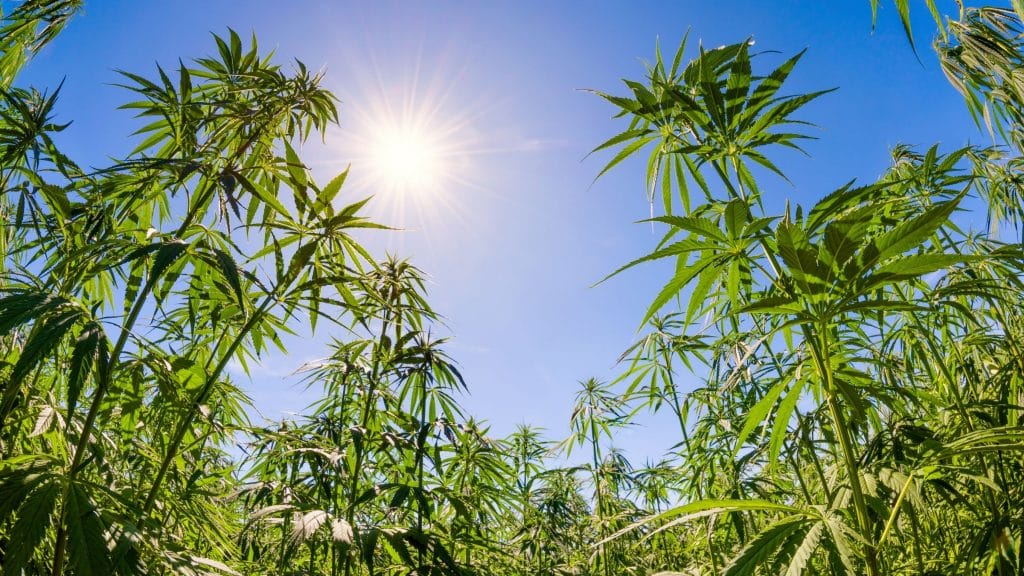
Delta-9 THC: Is It Natural?
Yes. Delta-9 is completely and 100% natural.
It is a naturally occurring cannabinoid present in the cannabis plant. In other words, it is an organic compound that can be found in both wild and cultivated cannabis plants without any human intervention involved.
Since the discovery that THC is the main psychoactive cannabinoid present in cannabis; growers, breeders, and scientists alike have bred certain cannabis strains to have higher levels of THC than what is naturally occurring.
The process of making delta 9 THC products can cause some confusion about THC’s natural status. To extract THC from cannabis plants, manufacturers make a concentrated extract with higher levels of THC than what you would find in nature.
THC can also be synthesized, although this is less common due to the ease of extracting it naturally.
However, shady manufacturers have created fake cannabinoids using toxic chemicals and marketed them as ‘legal weed.’ These are not natural cannabinoids and very dangerous products known commonly as K2 and Spice. Read here to learn more.
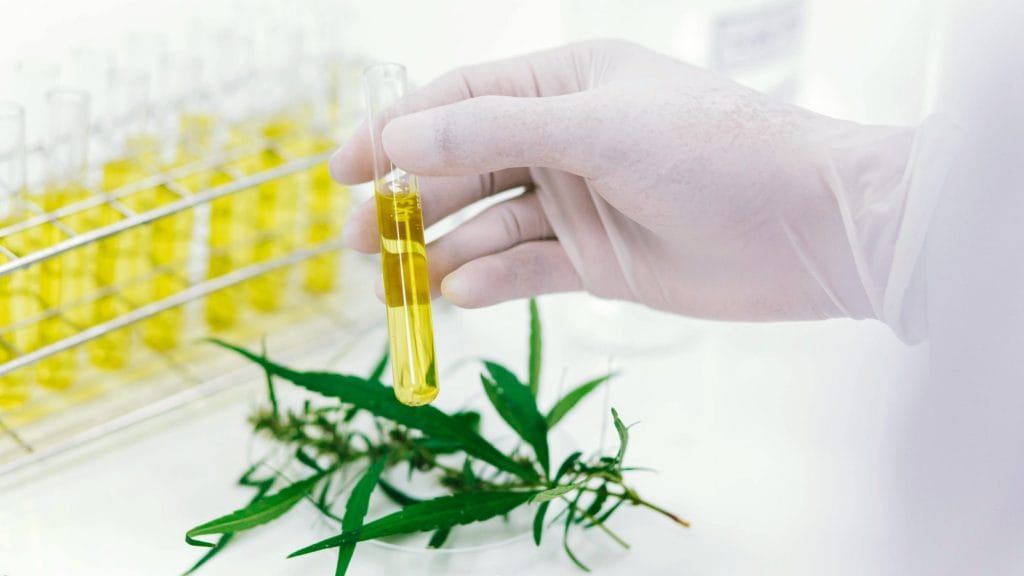
Delta-9 THC: How Is It Made?
As we mentioned above, delta-9 THC is a naturally occurring compound found in cannabis plants. Many cannabinoids, including delta-9 THC, start out in the marijuana plant as cannabigerolic acid (CBGA). CBGA is then converted to THCA (tetrahydrocannabinolic acid). The THCA then undergoes a process called decarboxylation which creates THC as the plant ages.
This process of degradation from CBGA to THCA to finally THC, takes time, so younger cannabis plants have fewer cannabinoids than older plants.
To create THC products, manufacturers extract delta-9 THC from mature cannabis plants to create a pure and concentrated extract. Supercritical CO2 extraction is the best and most effective method of extracting THC.
This is a technique that combines cannabis plant material with CO2 that has been placed under very high pressure and low temperatures. The combination of these two factors causes the CO2 to transition into a “halfway state” where it is both a liquid and a gas at the same time. This phase is called “supercritical.”
Supercritical CO2 works in the same way as chemical solvents but is much safer. Instead of having to go through the process of removing a toxic solvent after extraction, with supercritical CO2, the pressure is released and then it turns back into a gas.
There are many ways to make THC concentrations. One of them is called isomerization, where cannabidiol (CBD) is converted to delta 9 THC.
This method, however, has a lot of room for error and should not be executed by anyone who is not a chemistry expert. It involves dissolving CBD using a strong acid solution. While this method is popular because it is cheap, it comes with a lot of risks. You need to have extensive knowledge when it comes to chemistry to prevent accidental contamination of the final product.
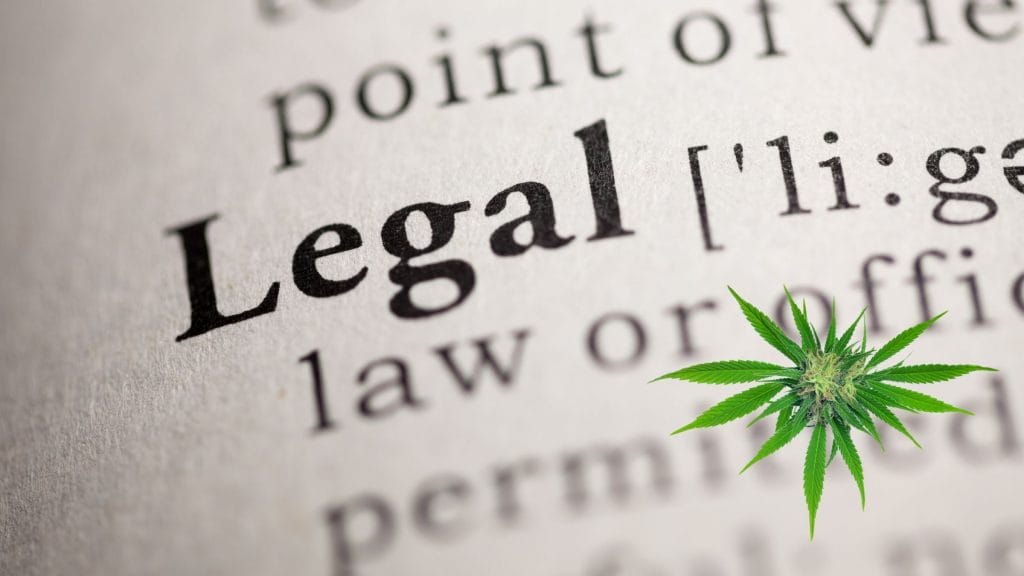
Delta-9 THC: Is It Legal?
Federally, delta-9 THC is still considered a Schedule I controlled substance. This means that it is federally restricted and illegal. Being a Schedule I drug means that it is grouped in with cocaine, heroin, and LSD.
Furthermore, delta-9 THC products are only commercially available in states that have legalized it. Currently, there are only about a dozen states that have legalized delta-9 THC. While it is still federally illegal, states have their own jurisdiction when it comes to creating legislation around cannabis or any substance really.
The 2018 Farm Bill federally legalized hemp and its derivatives, as long as it has less than 0.3% THC by weight. This bill removed hemp from the list of federally controlled substances. Moreover, cannabinoids such as CBD, CBG, delta-8 THC, and delta-10 THC are legal as long as they are derived from hemp plants, not high THC plants.
Unfortunately, this bill did not remove THC from the list of federally controlled substances. So, THC remains federally illegal.
Interestingly, some companies are able to get around the concentration requirements by using large amounts of hemp plant material to extract legal amounts of delta-9 THC by weight. Technically, these products are legal because they have less than 0.3% THC by weight, however, they still produce a psychoactive effect.
It is not likely that these products will remain legal for much longer.
Cannabinoids like delta-8 THC are forms of THC, however, they can be derived from hemp plants which makes them technically legal. However, they currently reside in a legal gray area.
THC is mainly regulated at the state level. Although it is still deemed illegal on a federal level, most states allow medical or recreational use. Only a handful of states still ban the compound entirely.
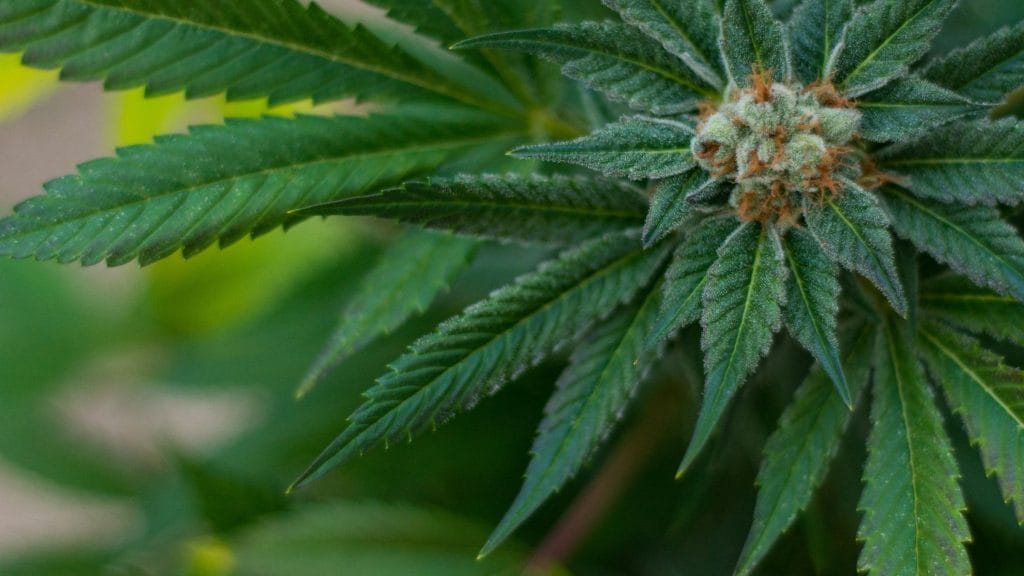
Delta-9 THC: Where Is It Still Illegal?
In the following states, THC is banned, even for medicinal use:
- Indiana
- Kansas
- Georgia
- Idaho
- Iowa
- Kentucky
- Mississippi
- Nebraska
- North Carolina
- South Carolina
- Tennessee
- Texas
- Wisconsin
- Wyoming
Where is Delta-9 THC Legal?
Recently, many states have legalized THC for recreational uses. However, the majority of U.S. states have restrictions on THC.
Below is a list of states where D9 THC is recreationally legal:
- California
- Colorado
- Arizona
- Massachusetts
- Illinois
- Connecticut
- Maine
- Michigan
- Montana
- Nevada
- New Jersey
- New Mexico
- New York
- Oregon
- Vermont
- Virginia
- Washington
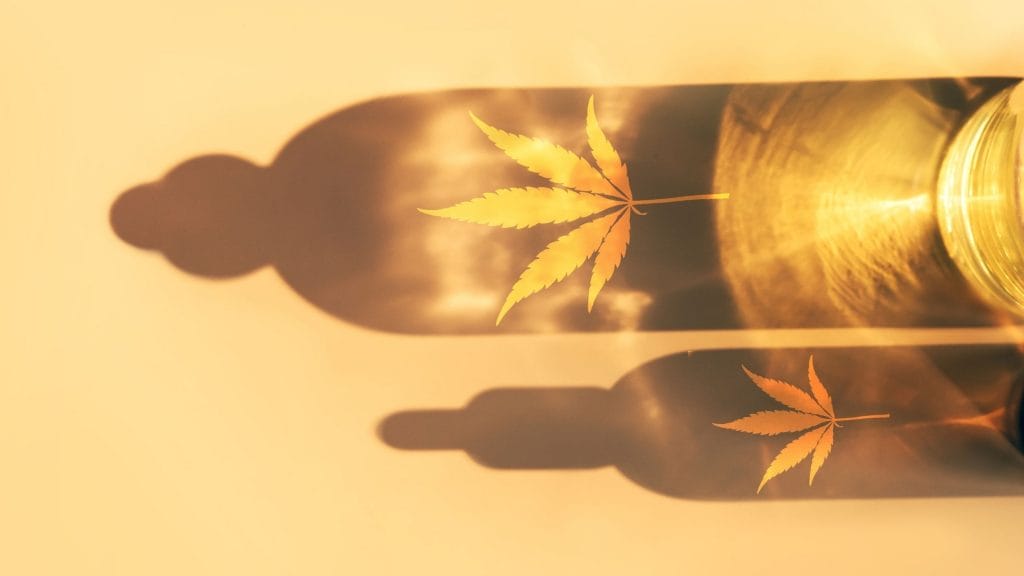
Delta-9 THC: Effects
THC can affect everyone differently, so it’s difficult to give an across-the-board effect profile.
However, here are some of the most common effects experienced by ingesting THC.
Before we get into it, it’s important to note that there are many factors that contribute to the effects of THC. To begin with, the type of THC you are ingesting, whether its smoking raw flower, smoking a concentrate, taking an edible, a tincture, a vape, etc, can all impact your experience with THC.
In addition, the strain you are ingesting, whether it’s an isolate or a full-spectrum product can all dramatically affect your experience with THC.
Moreover, here are some of the most common experiences reported by people who use delta-9 THC:
#1 Cognitive Effects
Delta 9 THC is a psychoactive compound that can affect both the brain and cognition. It is a mind-altering and intoxicating substance. This means it can produce feelings of euphoria, improved mood, and altered sensory perception, which can sometimes include vivid imagery and colors. However, it is important to note that this is not the same as hallucination, instead, it is an intense experience of the same sensory inputs.
In addition, giddiness and laughter are very common when ingesting THC. Some people even report feeling altered perception when it comes to the passage of time. Hours can feel like minutes when taking THC.
Also, the strain you are ingesting, whether it is an Indica or Sativa, can impact your experience. Sativa is more of a cerebral experience and users often feel more awake and stimulated when ingesting Sativas. However, Indicas cause more of a relaxed and sleepy experience.
THC binds to the CB1 receptor within the endocannabinoid system. The CB1 receptor is directly connected to the central nervous system, so it has a strong impact on how we feel. Sometimes, for some users, this intense cerebral sensation can be overwhelming. This can lead to rapid heartbeat, paranoia, and anxiety. These are some of the negative side effects associated with psychoactive delta-9 THC.
#2 Physical Effect
Physically, THC has many different effects. Again, there are a number of factors that contribute to how THC affects everyone individually. Among these are age, weight, physiological makeup, enzymes present in the liver, etc.
Most famously, THC leads to an increased appetite, commonly known as the “munchies.”
In addition, for some, THC can cause feelings of relaxation, and reduction of tension and pain in the body.
THC is used by many for its ability to provide strong pain relief. It is used as a muscle relaxant, as a treatment for nausea, and many other ailments.
There are a number of physical benefits associated with using THC, while we can’t get too into it here, we encourage you to look into the various studies on cannabis and its therapeutic properties.
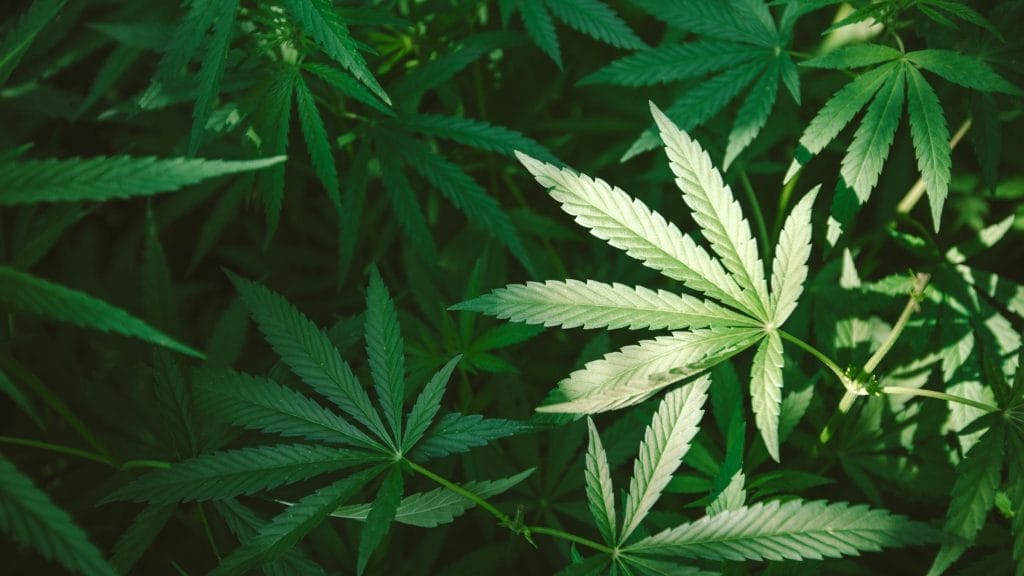
Side Effects
As we mentioned above, there are a few pertinent side effects associated with THC. Since delta-9 THC can affect people differently depending on numerous factors, it’s hard to list all of the effects and side effects, but here are the most common side effects.
While there are a few prominent side effects associated with THC, none are too serious. No one has ever fatally overdosed on THC alone.
That being said, ingesting too much THC can lead to discomfort for many. Getting too high from ingesting delta-9 THC can lead to feelings of paranoia, anxiety, and panic.
Again, these effects are more common when taking large doses of THC, or if you are a new user and ingest too much at once.
While these side effects may seem mild, they can be quite scary when you are in the thick of it.
If you ever get too high, check out this article: How To Sober Up From Being Too High
Delta-9 THC: How Does It Work?
As we briefly mentioned earlier, our bodies have an endocannabinoid system (ECS) that is built specifically to interact with cannabinoids like THC.
We produce our own endogenous cannabinoids which interact internally with our ECS system. We also can ingest external cannabinoids like the ones found naturally in the cannabis plant.
The ECS is very important in the regulation of many bodily systems and has many responsibilities. It is involved in a process called “homeostasis”, which essentially means balance. The ECS is necessary to maintain optimal hormone levels, as well as to regulate appetite and pain, body temperature, stress levels, and much more.
Again we have two main receptors in our endocannabinoid system, CB1, and CB2.
The CB1 receptor is found mainly in the central nervous system (CNS) and is responsible for the psychoactive effects associated with THC.
Because the CB1 receptor is located in the CNS, it can lead to feelings of relaxation and euphoria, or levels of anxiety and panic when ingesting THC. In essence, it can go either way depending on a number of factors.
Delta-9 THC binds strongly to the CB1 receptor, which is what causes the psychoactive effects, and also signals the body’s serotonin system.
Serotonin, a hormone that regulates our mood and well-being, plays an important part in digestion, sleep, and overall well-being. Because THC binds to this serotonin regulating receptor, it indirectly influences the effects of serotonin through the CB1 receptors. This leads to the characteristic THC high that many THC users are familiar with.
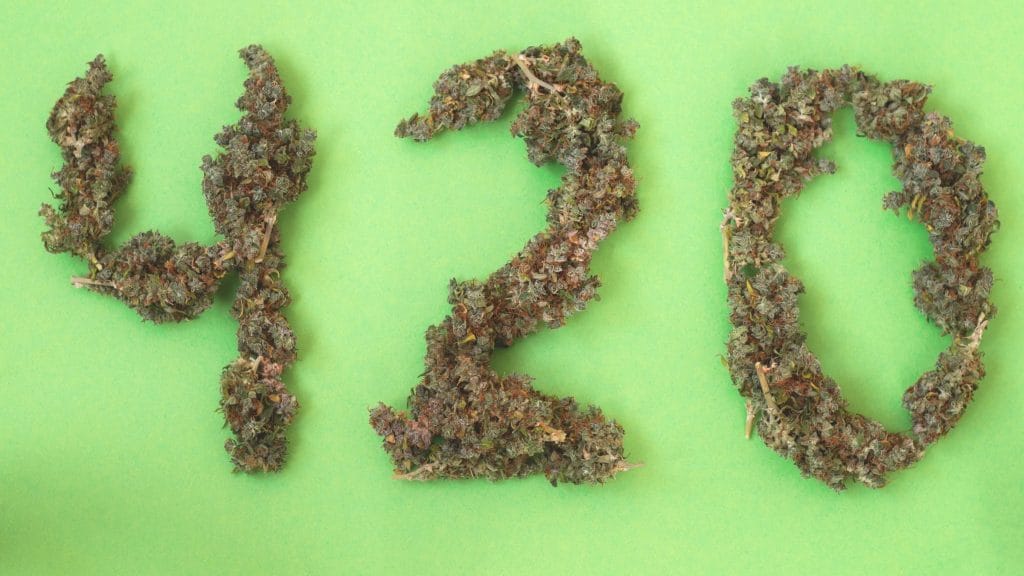
What Is a Regular Dose of Delta-9 THC?
The average dose of THC is between 10 and 25mg. However, dose sizes vary widely depending on tolerance, body weight, and a number of other factors we won’t get into here.
That being said, we always say it’s best to start low and go slow. Beginners should take a small dose of around 5mg. Experienced THC users may take as much as 50mg in a single dose.
Again, dose size can also be affected by metabolic and genetic factors. Different people may react to the same dose in different ways.
For beginners, it is a good idea to start with small doses of THC. Then gradually increase the dose until you find the right dosage.
How Does Delta-9 THC Compare To Other Cannabinoids?
When it comes to other cannabinoids, THC is the most well-known and strongest psychoactive compound.
However, THCP has been shown to be 30 times as potent as delta 9 THC. It is important to note that, the scientific studies on this cannabinoid are in their infancy.
CBD is another cannabinoid that has recently risen to prominence. CBD is different from THC for many reasons. Firstly, it is federally legal, and not considered to be psychoactive. It is used mostly for relaxation, general well-being and homeostasis, as well as a sleep aid, and much more.
Delta-8 THC is another popular cannabinoid that is a different form of THC. It currently lies in a legal gray area due to its psychoactive properties and the fact that it is an isomer of delta-9 THC. However, while it is technically THC, it can be derived from legal industrial hemp which renders it federally legal.
There are a number of other cannabinoids recently surfacing that are related to delta 9 THC insofar as they are all cannabinoids and hemp-derived. Examples of these are CBG, HHC, THC-O, CBN, D-10 THC, and more.
Delta-9 THC: Takeaways
After reading this article, it should be clear that delta-9 THC is the full name for what is typically referred to as simply “THC.”
It is the primary psychoactive compound found in the cannabis plant. It can be used to treat a number of ailments, including nausea, anxiety, pain, etc.
Furthermore, medical marijuana is legal in 38 states in the United States. THC is recreationally legal in around 17 states, however, this is subject to change. Efforts for federal legalization are well in-progress.
It is possible that delta-9 THC will be federally legal in the near future.
THC is mostly consumed by smoking or taking it in edible form. Topical uses are underrated when it comes to pain relief or other ailments.
When it comes to enjoying delta-9 THC, the golden rule is to start low and go slow.
Adverse side effects as a result of taking too much THC are not enjoyable and should be avoided.
Stick to taking a low dose of 5 mg until you feel more comfortable taking more.
Our personal biologies are so different and the right dose for you may be too much or too little for someone else.
THC is a powerful and healing compound with many medicinal and recreational uses. That being said it is a potent psychoactive compound that should be treated with reverence and respect and not abused.

